Sent to you by moya via Google Reader:
Things you can do from here:
- Subscribe to my best friend gayle using Google Reader
- Get started using Google Reader to easily keep up with all your favorite sites
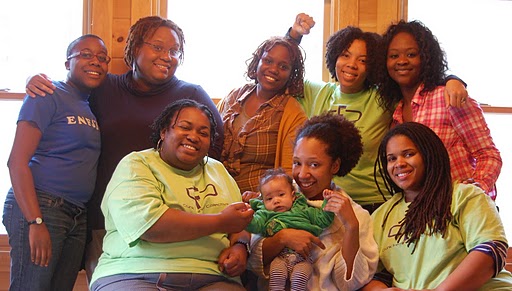
It seems like we expend so much energy helping and saving others, we have nothing left for ourselves. I see too many of us feed everyone else and forget to eat. In the case of this blog, I've seen us use a lot of energy dealing with negative comments and backlash, finding and becoming resources for those who ask, then end up with little time or reserves left to support each other.
I take inventory from time to time of what posts get the most attention on the blog. Pop culture posts and even more specifically, moments in pop culture when white women do racist things or black men do sexist things get folks all atwitter. To me, this speaks to the gendered racism and racialized sexism that impact many of the cis women of color bloggers here. These posts that rise from our particular stand point are often the ones where we have to do the most work, reminding folks that no, this is not a post racial world and gender, race, and sex are always at work in complex ways. And we want so badly for folks to get it, that we neglect each other and ourselves in the process.
I think because we are so used to an embattled position with folks who wield power over us, we cut corners and are sometimes less patient/more careless with each other. As of late the CFC has taken some hits from other women of color, some deserved, some not, about what and how we write here. I've seen moments of real opportunity for engagement squelched by reactionary stances. I look for models of fierce and loving critique between women of color and I'm saddened by how rare it seems to be.
As I check my own willingness to hear the hard truths about myself, I see another connection to my thoughts about women of color's labor in the world. Why is it that my self-care to do list is the shortest and the last one I get to? Why do I expend more energy trying to make people understand rather than giving that time to the people who show up for me? Why do I lay claim to allyship when I'm too busy to be present in the ways people ask me to? Honestly, I think I find it easier to deal with someone else's stuff than my own.
Racism, sexism, queer hate? I know how to handle those. I've got my arsenal of feminists theory and lived experience to take them down. By dealing with the world, I can avoid my own places of privilege or the stickiness of issues that don't have such clear power differentials in my life. In an age where internet courage can allow you to rail at any deemed threat through a screen, we still have trouble saying the hard things to the people who are closest to us.
Me and mine first.
The self-care list gets checked first. The work I need to do for myself is next. Then comes the family/friends/loved ones.
If a video drops in a forest of things that seem to matter a lot–like fingers waving in presidential faces and self-deportation–does sit make a sound?
Nicki Minaj dropped "Stupid Hoe" last week.
Maybe I'm too old to have my thumb on the relevant spaces in the interwebs, but it seems like the video barely caused a buzz. Responses from Jezebel, Clutch, and Vibe were mainly negative, complaining about Minaj's use of animalistic imagery, neon colors and her less than creative wordplay. Black feminists offered mainly negative critique for obvious and perfectly legitimate reasons. Minaj's challenge to "stupid hoes" included a reference to "nappy-headed hoes" and images of a pale, plastic, Venus Hottentot Barbie.
Me? Minaj hurts my head. She perplexes me. I think of her as Trickster, two-faced in her betrayal of global black feminist possibility and powerful in her contradictory elucidation of black woman's power within the realms of celebrity and hip hop. Reading her as Ellegua, that frightful guardian of the crossroads and the in-between and the everything-that-is-not-yet seems to fit an artist who switches alter egos as easily as she switches clothes. Conjuring the ritual and physicality of possession seems to fit a celebrity who changes clothes as she changes personality, putting on her and taking off her tropes as each personality comes down. The sometimes garish, sometimes delightful carnival of color, glitter and expression–even the repetitive dancehall/house music refrain–also fit a woman whose aesthetic choices continually find their footing in her Trinidadian roots.
In other words, I think of Nicki Minaj as diasporic black, as radical, and as speculative.
A week ago, I would have said she is also afrofuturistic. There is something otherworldly about her ability to pick up and put down masks and characters. It's more than just having a stage persona. It's something I see as rooted in a longer black experience of contending with mainstream politics and culture, both of which prefer black female presenting people fit neatly into particular boxes. Those boxes come in different shapes and sizes. Some are just bodies, but with bionic booties for your jiggling pleasure. Others are all-knowing Mammies with wisdom for latently racist white girls. Still others are cruel, pray-the-gay evangelicals with anger written in hard lines across their faces.
A black gyrl can't walk out the house these days without falling into one of these boxes. Hell, with Oscar season on top of us, we've seen all of these stereotypes appear in the media, one right after the other, at one point or another, just over the last few weeks.
But I'd argue we've never seen anything like Nicki Minaj–or at least nothing like Minaj and her alters. What she represents, yes even in all of her problematics and misogyny, what she represents is a black gyrl who has chosen. She knows she can't walk out the house without falling into one of several boxes. Which is fine by her because she has a walk-in closet full of handcrafted masks, carved, of course, in the raw material caking the bottom of our worst stereotypes (let's not be wasteful, yall). And she has decorated and bedazzled and glitter-taped them all and those masks are no longer theirs or yours but her own. And she doesn't walk out of the house; oh no. She skips or saunters or "twerks and spins away" according to whichever personality she has decided to put on her head.
I think this is why, in an epic conversation on Twitter with (Kima) @sweat_btwn, (Summer) @fecundmellow, @zero317, @AfroFuturAffair, and (Treva Lindsey) @divafeminist (the conversation, Storified here in full by @sweat_btwn, read away), I suggested Minaj could be read as afrofuturistic. The conversation that ensued was amazing and hinged on clarifying and articulating what afrofuturism is.
For some of us, to be afrofuturistic meant more than aesthetics or appearance. It meant contributing to a specific political project part of whose purpose was, in Kima's words:
Octavia Butler was the patron of this powerful vision, key being her ability to articulate the potential of the beyond–and its dangers. And the ability to imagine and move beyond this world, into other realms, was crucial.
For others, the aesthetics actually were of importance, as was the potential for Minaj to inspire a particular vision, and the right of readers/viewers/fans to use Minaj's project as inspiration for their own afrofuturescapes. As @AfroFuturistAffair noted:
"…it is political but it is also aesthetics and imagery. she may fit in that sense…"
The conversation lasted for hours, with people coming in and out. And I hope it continues.
Because I think I'm on the fence now as to whether Minaj is afrofuturistic. That afrofuturism must be beyond-this-world is valid as shit. Whether that means into outer space or into the underworld, to be afrofuturistic means being self-aware about what the next day or days will hold–even if the next day or days will be the end of days. To the extent that Minaj or her alters have a specific gaze toward the future is questionable.
But the underlying assumption behind this definition of afrofuturism is that time is linear and revelatory. It speaks to a conception of time that is Anglo-black in its ideal and Judeo-Islamic-Christian in its eloquence. Time soon come. Time will be here. The time is now.
What if the underlying assumption behind this definition of afrofuturism was challenged? What if, instead of black life and thought (and future) existing in time and on straight, if intersecting, lines–what if it curved? Webbed? What if you wore time on your person so that instead of the time is now, time IS now, and then, and later. What if the moment you are living here is being written of as the moment that will happen and the moment you are just past?
I opened the Storify by saying I see Minaj and moments like these as an afrofuturista. I do. But I'm also a radical womyn of color who sees the future through the lens of Afrolatinidad. Latinidad has less room for linear time in its conception of the future. Infused with indigenous elements, the future is happening now and has happened already. Speculative latinidad, in some ways, is about the inability of being able to call the future what it is, or send the past back. So that something like "Long Time Ago" by Leslie Marmon Silko (poet and author of Laguno, Pueblo, Mexican, white descent) can resonate as cautionary, prophetic and preemptive all at once:
It's already turned loose.
It's already coming.
It can't be called back.
While speculative latinidad is often placed in the category of magical realism, I wonder if it is also futurist. I wonder if it's just that speculative/futurist latinidad imaginings are as much about the past as they are about the future. And if that's the case, and if afrofuturist imaginings are as much about the future as they are about the present, I wonder what Afrolatinidad looks like?
In other words, preoccupied with the slaveholding past and concerned about the racialized future, does an afrofuturist latinidad live at the crossroads between magical realist latinidad and the Afrofuture?*
Engaging with Minaj (and for my black-Puerto Rican, Chicago house music self, this also means engaging with the Caribbean characteristics in her work) forces me to consider ways afrofuturism can include magical realist latinidad and vice versa. Earlier I said I was on the fence on whether Minaj is afrofuturistic. Why? Because she is still very much about, as Summer noted, a hyperhyperpresent, her caricatures being as much about mirroring our own stereotypes as they are about her self-representation. Hottentot Venus Barbie aside, she also does not seem to be concerned with reevaluating the past-as-prophecy (unless in the Story of Female Emcees Past). In other words, she is espousing neither a dream nor a nightmare of the future.
But what if she isn't supposed to be the vision?
What if she is just the oracle? The vessel? A portent of things to come?
What if she is just the keeper of the crossroads?
She may be what lives at the crossroads between magical realist latinidad and the Afrofuture. Well, mira, not her (praise Gawd). But oracle work, scrying, divination. All making the act of and attempt to see the future just as important as the past-future seen. The moment in the present before the past and future separate and becomes siblings as #relevant.
What if at the heart of an afrofuturist latinidad/futurist afrolatinidad is good, ole Second Sight? And #Obatala?

*Which of course is a project to superimpose ON TOP of pushing latinidad itself to include its own black and African elements.

In case you missed it, there's a new meme on the block and its kind of my favorite thing ever! The video that got things started, Shit (white) Girls Say, makes up for its own lacklusterness with the brilliance that it inspired. I have to admit, it's been a while since I've been around groups of straight white women to know if those characterizations are true or not, but it smacked of sexism that made me think it's more projection than accurate performance. It was followed by Shit Black Girls Say which failed to capture the things I say as a Black girl. These weren't simply reflections of "shit girls say" but a demographic of straight white and black women with a particular class background. The infantilizing title aside, "Shit Girls Say" poke fun at women through the use of the male gaze.
I realized what didn't make these funny to me was exactly what made the ones that came after them work so well: Privilege, or rather the lack there of. The power differential in "Shit Girls Say" is skewed. Men dragging women and parodying what they believe to be their words as marginalized people in society has significant limits. In contrast, the videos that have marginalized folks speaking for themselves and back to the power structure by simply repeating the privilege denying questions and statements they field, are solid gold!
None has more fully made its way around the Interwebs than Shit White Girls Say… to Black Girls. I have heard every one of those statements. And according to facebook, so have many many of my friends. Comedian Franchesca Ramsey brilliantly pulls the meme out of patriarchal hands and creates the opportunity for folks to see and hear privilege in action. Her appearance on Anderson discussing her viral video actually underscored many of her points. Anderson was shocked an awed that she had experienced what she described in the video and the sad truth that many white people still don't know what racism means came to the fore.
Shit White Girls Say… to Black Girls begat so many gems:
Watching Shit People say to Native Americans left my heart feeling heavy. Shit Black Guys Say did make me chuckle but again, my laughs were stifled by the dishonesty directed at female partners laid bare (I was super excited to see a comedian favorite of mine from my favorite web video ever). Shit gets real and not very funny when the power differential is wide.
And as much as I love the witty way that people are speaking back to oppression through this meme, I realized that some conversations are just too fraught to be distilled in this way. I started to think about conversations amongst different "girls" of color, what a Shit Black Girls say to Arab Girls (or vice versa) might look like. I don't think that this format could hold the complexity of such a conversation and it definitely couldn't be the one sided, question/statement only nature that these videos suggest. But now as the meme starts to peter (maybe?), we might be open to thinking about conversations and exchanges amongst the margins and how that might shift the camera lens.

| ||||||||||||||
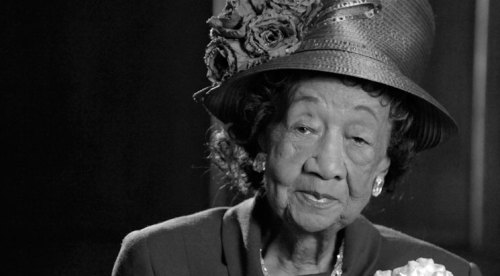
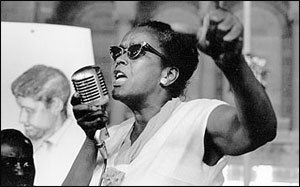
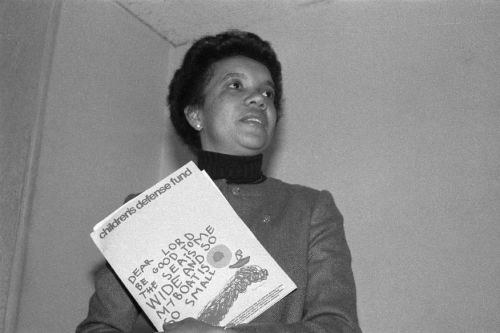

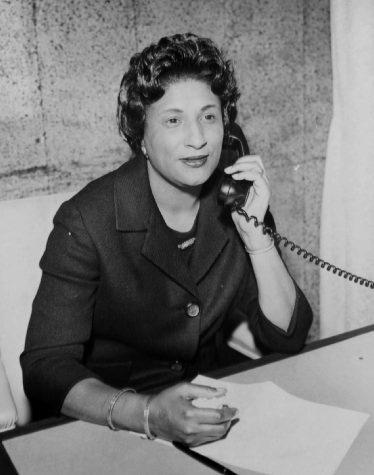
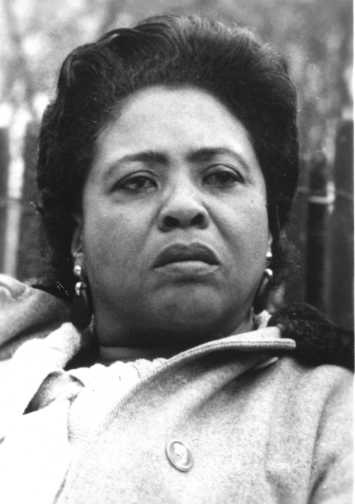
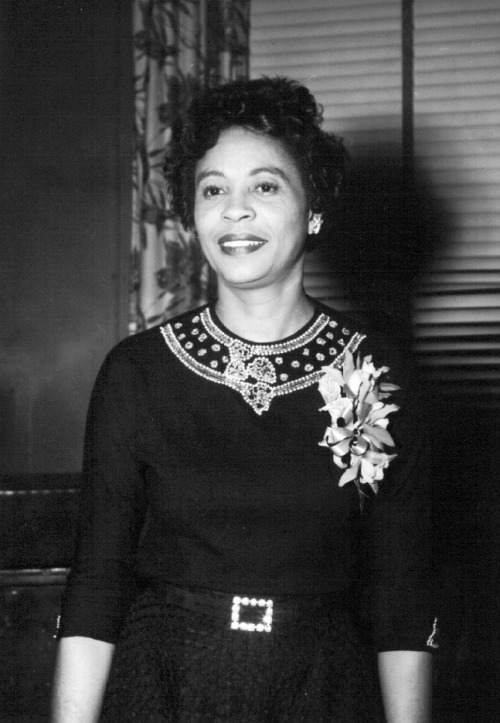
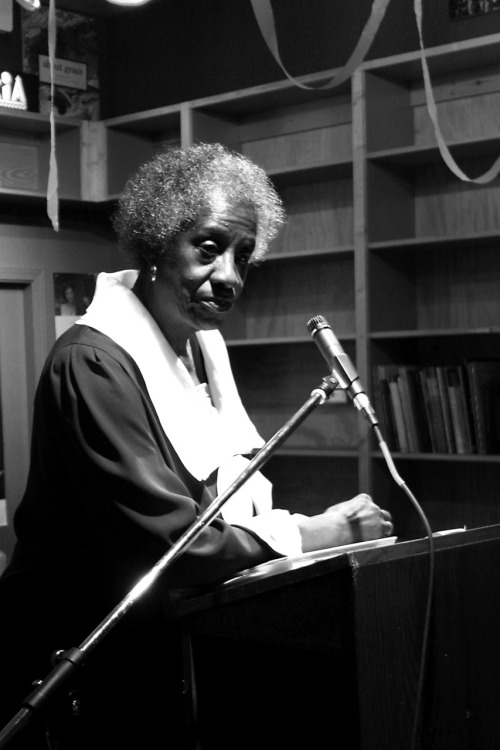
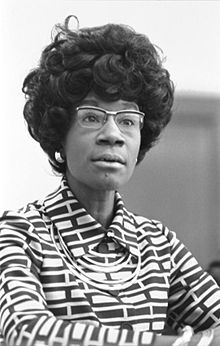
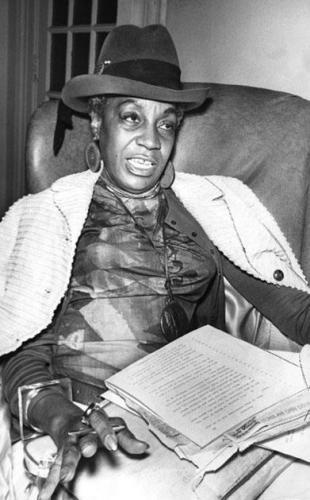
We have to improve life, not just for those who have the most skills and those who know how to manipulate the system. But also for and with those who often have so much to give but never get the opportunity. - Dorothy L. Height
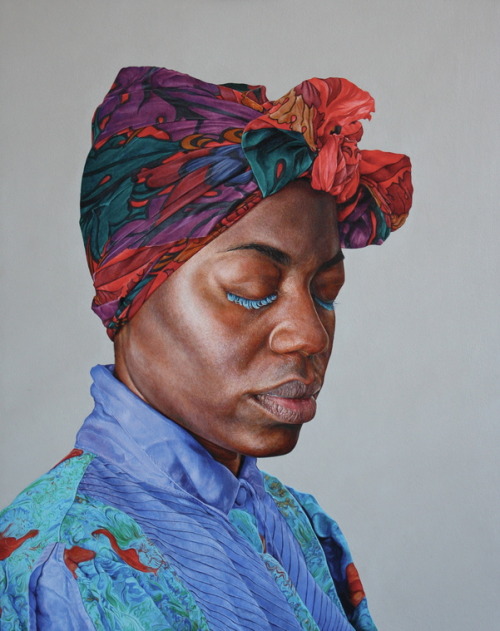
Latoya by Alan Coulson 2011.
This is stunning.
(via tea-and-blackfigs, via @bklynboihood)
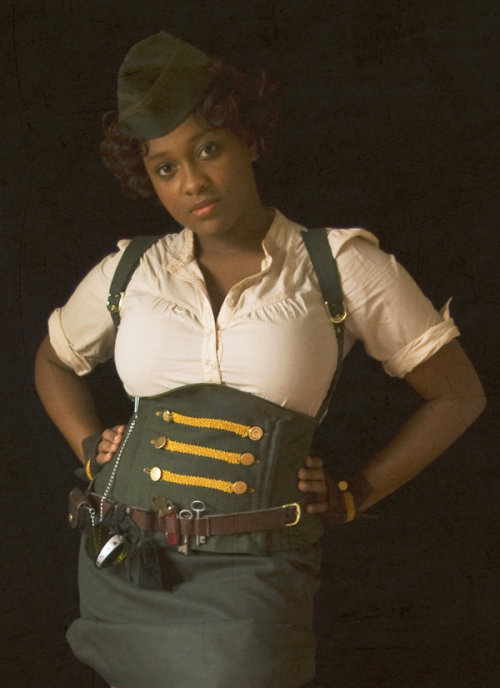
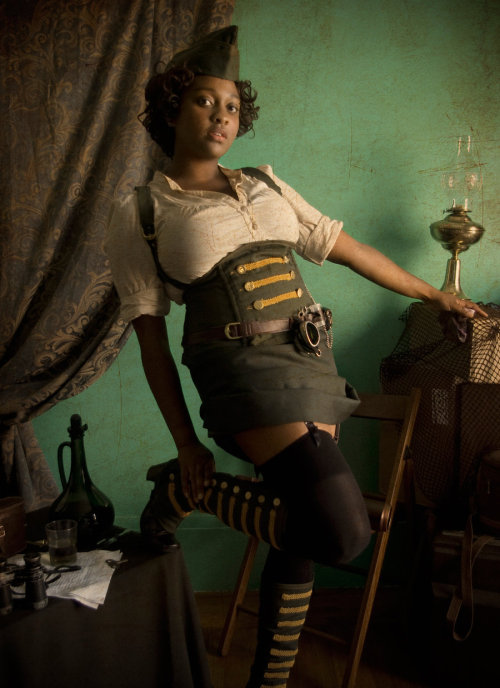
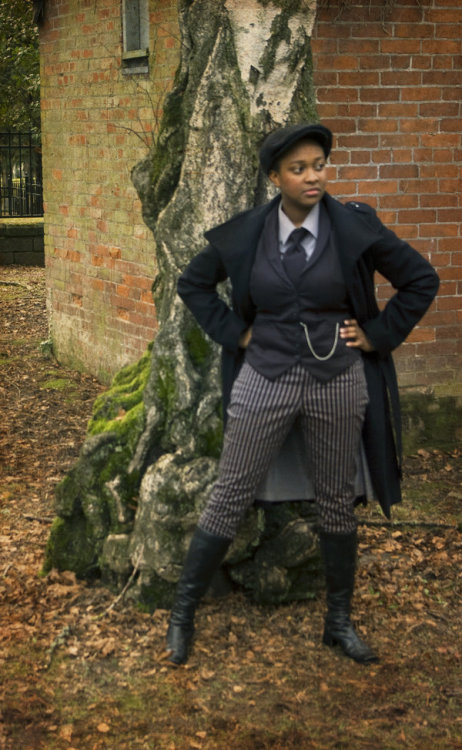
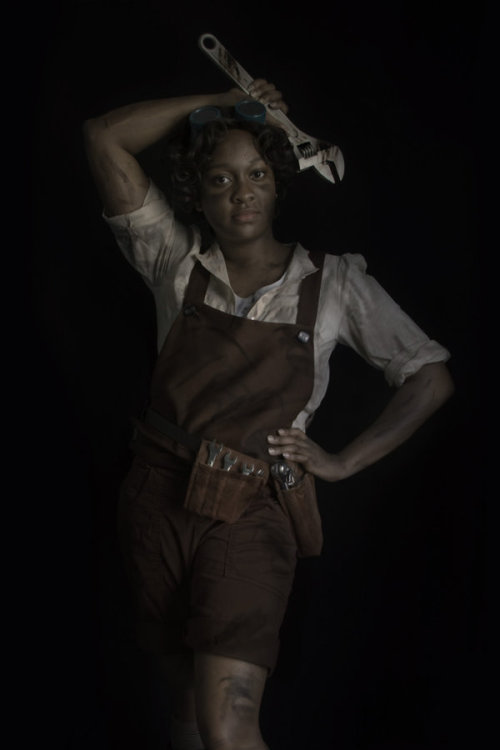
Found her! BlackBettie on DeviantArt.
And ohmigosh, I LOVE ALL OF THIS. I couldn't settle on just one pic from her gallery, so HAVE A PICSPAM. :D
Wow. WOW. She is AMAZING.
[Images of a black feminine person dressed in various steampunk outfits, predominantly involving machine repair. amaze.]